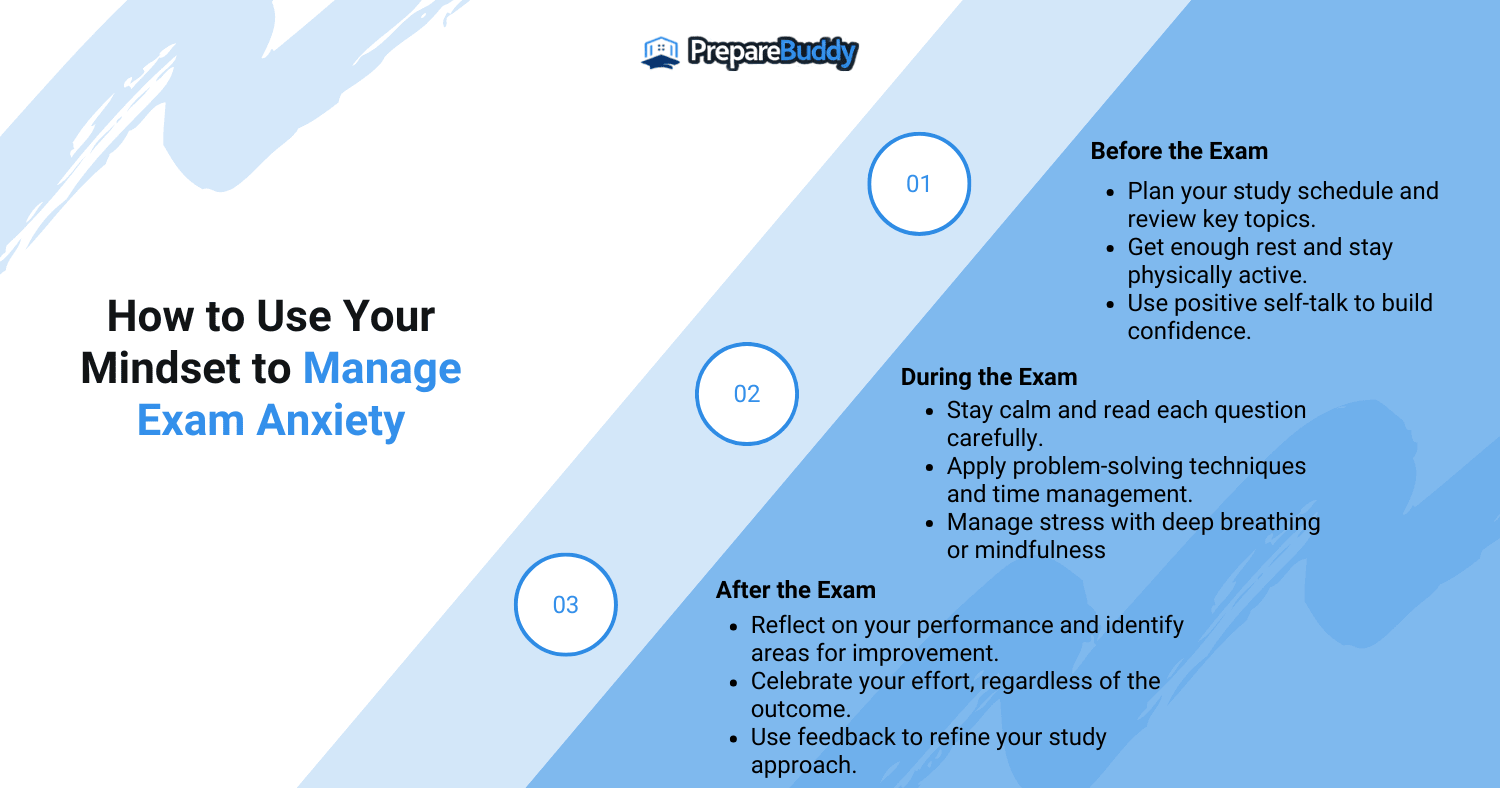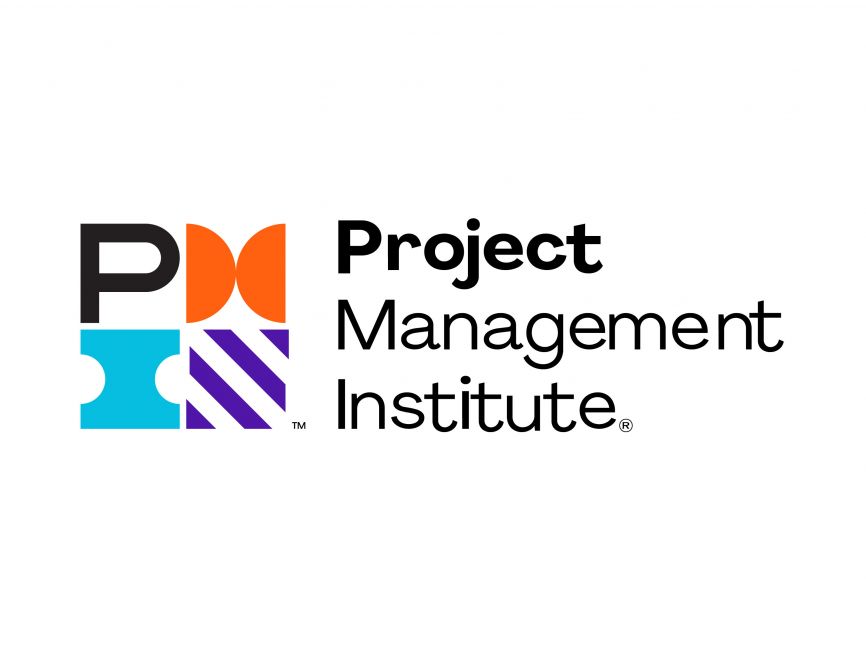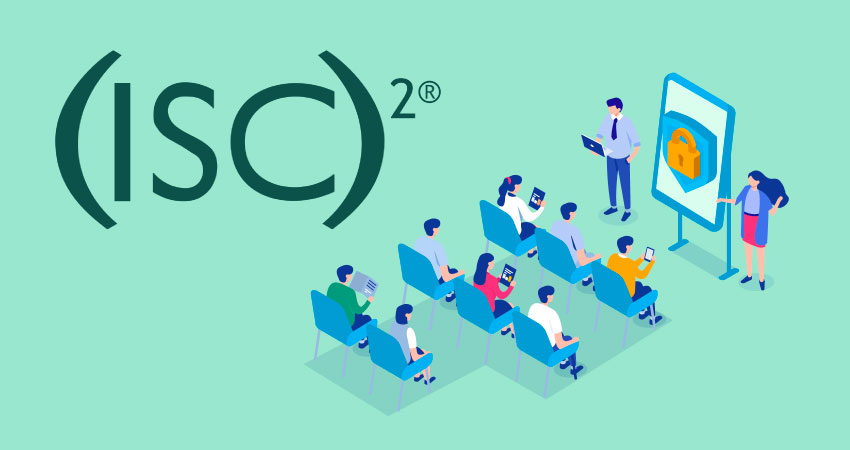
Exams can feel overwhelming, and anxiety often takes over when the pressure is high. However, you can turn that anxiety into confidence by adopting effective strategies. A well-structured study plan, interactive resources, online exam preparation, and incorporating relaxation techniques can help you stay calm and focused. With the right tools and mindset, you can approach your exams with clarity and a sense of control, turning stress into success.
In this blog, we'll discuss practical strategies to manage exam anxiety. We'll cover everything from online exam preparation techniques to developing strong study habits and using mindfulness to stay calm. Whether you're gearing up for a school test, a competitive exam, or a professional certification, these expert-backed tips will help you remain confident and well-prepared. Let's get started!
Understanding Exam Anxiety
Exam anxiety is a common struggle among students, leading to symptoms like stress, nervousness, and difficulty concentrating. It can be caused by high expectations, fear of failure, or inadequate preparation, often affecting academic performance by reducing confidence and memory recall.
Physical Symptoms
When anxiety sets in, the body’s natural fight-or-flight response is triggered, releasing stress hormones like adrenaline and cortisol. This can cause a range of physiological reactions, including:
Increased Heart Rate: Rapid or pounding heartbeat due to nervousness.
Excessive Sweating: Particularly on the palms or forehead.
Trembling or Shaking: Uncontrollable shaking of hands, legs, or voice.
Nausea or Vomiting: Queasy stomach, sometimes leading to vomiting.
Headache: Tension-related pain caused by prolonged stress.
Dizziness or Lightheadedness: A sense of unsteadiness due to overwhelming anxiety.
Shortness of Breath: Difficulty breathing or chest tightness.
Muscle Tension: Stiffness in the neck, shoulders, or back.
Dry Mouth: A parched feeling making it harder to speak or concentrate.
Panic Attacks (Severe Cases): Intense fear episodes with rapid heartbeat, dizziness, and a feeling of losing control.
Emotional Symptoms
Beyond physical discomfort, anxiety can take an emotional toll, shaking confidence and hindering concentration. Common emotional symptoms include:
Fear and Worry: Persistent dread of failing.
Irritability and Restlessness: Difficulty relaxing or sleeping before the exam.
Lack of Focus: Struggles with concentration due to anxious thoughts.
Negative Self-Talk: Self-doubt and thoughts of failure.
Feeling Overwhelmed: A sense of helplessness about exam preparation.
Impending Doom: A belief that poor performance will have serious consequences.
Cognitive Symptoms
Exam anxiety can impair cognitive functions, making it difficult to process and recall information effectively. Common cognitive symptoms include:
Difficulty Concentrating: Anxiety makes it hard to focus on studying or classwork.
Racing Thoughts: Constant worries about performance and potential failure.
Mental Blocks or "Blanking Out": Inability to recall information during the exam.
Distorted Thinking (Catastrophizing): Expecting the worst possible outcome.
Comparing Oneself Negatively to Others: Heightened self-doubt from perceived inferiority.
The Impact of Anxiety on Academic Performance
Anxiety can significantly hinder academic performance by affecting concentration, retention, and decision-making under pressure. Persistent worry and self-doubt often lead to procrastination, difficulty grasping new concepts, and poor test performance. Physically, anxiety may cause fatigue, headaches, and sleep disturbances, further reducing cognitive efficiency.
Emotionally, it can erode confidence and motivation, making studying more challenging. In severe cases, anxiety creates a cycle of stress and underperformance, where fear of failure leads to avoidance behaviors, ultimately impacting academic growth.
The Role of Mindset in Managing Anxiety
A positive mindset is crucial for managing anxiety, allowing students to reframe their thoughts and confidently face challenges. By shifting from a fear-driven perspective to a growth-oriented one, exams can be viewed as opportunities for learning rather than threats.

Practicing self-compassion, replacing negative self-talk with affirmations, and focusing on progress over perfection can reduce anxiety. Mindfulness and visualization techniques further build resilience, helping students stay calm and focused under pressure.
A strong, optimistic mindset eases anxiety and enhances academic performance and well-being.
Effective Online Exam Preparation Strategies
Preparing for exams requires a well-structured approach to enhance learning, maintain focus, and minimize stress. These strategies help students stay motivated, maximize their potential, and excel in their exams.
Utilizing Online Resources and Study Materials
Leveraging online resources is an effective way to deepen understanding and improve exam readiness.
Educational platforms offer study guides, research articles, and interactive exercises tailored to different learning styles. Online resources include video lectures, quizzes, and discussion forums, enabling students to engage actively.
By incorporating online exam preparation, students can access high-quality learning materials anytime, reinforcing their knowledge and improving academic performance.
Creating a Structured Study Schedule
A well-structured study schedule ensures efficient time management and prevents last-minute cramming.
Implementing time management techniques, such as the Pomodoro method (25-minute focused study sessions with short breaks) or time-blocking (allocating specific times for different subjects), allows students to break study sessions into manageable intervals, improving focus and productivity.
Setting realistic goals and milestones ensures steady progress, reducing stress. A well-planned study schedule enhances comprehension and boosts confidence, making exam preparation more effective.
Engaging in Active Learning Techniques
Active learning techniques enhance comprehension and retention, making exam preparation more effective. Practice tests and quizzes help students assess their knowledge, identify weak areas, and familiarize themselves with the exam format, reducing test anxiety.

Integrating virtual test practice into your study routine helps simulate real exam conditions, making it easier to adapt to pressure and manage stress effectively. Self-assessment tools like flashcards and summarization strengthen learning by promoting active recall and concept application.
By using these techniques, students enhance problem-solving skills and elevate their academic performance.
How PrepareBuddy Helps in Your Online Exam Preparation
PrepareBuddy is a cutting-edge online exam preparation platform that utilizes AI-driven tools to help users prepare for certification exams. The platform offers real-time exam simulations, allowing users to practice in a controlled environment.
The AI Exam Buddy provides immediate answers and detailed explanations, simplifying complex concepts. Progress tracking enables users to assess their strengths and areas for improvement, while the regularly updated content ensures relevance. PrepareBuddy prioritizes privacy by collecting only essential user data for a seamless, secure experience.
How PrepareBuddy Reduces Exam Anxiety
PrepareBuddy alleviates exam anxiety by offering personalized study plans, online exam preparation, and real-time exam simulations that build confidence.
The AI Exam Buddy provides instant feedback, making it easier to grasp complex topics. Progress tracking helps users stay on top of their preparation, ensuring they are always ready for the next challenge.

Regularly updated content minimizes uncertainty and helps users feel more in control. With these tools—and integrated Virtual Test Practice modules—PrepareBuddy creates a calm and supportive study environment, reducing stress and promoting focus.
Incorporating Relaxation and Stress-Relief Techniques
Managing stress is essential for adequate exam preparation. Incorporating relaxation techniques, such as deep breathing exercises, meditation, and physical activity, helps alleviate anxiety. Regular breaks, proper sleep, and healthy nutrition are vital in maintaining focus and mental clarity.
Listening to calming music or engaging in hobbies also helps control stress levels. A balanced approach to preparation ensures both mental and physical well-being, ultimately leading to improved performance on exam day.
Online exam preparation offers practice exams and helps students become familiar with the actual test environment. This approach boosts confidence, enhances performance, and allows individuals to identify strengths and weaknesses before exams.
Final Thoughts
Overcoming exam anxiety is essential for academic success. Students can effectively manage stress and boost their confidence by recognizing the symptoms, addressing emotional and cognitive challenges, and adopting a structured approach to online exam preparation. Utilizing online resources, maintaining a positive mindset, and engaging in active learning techniques—such as regular Virtual Test Practice sessions—can transform exam preparation into a productive and less overwhelming journey.
Ready to take control of your exam preparation? Try PrepareBuddy, an AI-powered exam preparation platform offering customized study plans, practice tests, progress tracking, and personalized learning support. With mobile access, peer learning, and multilingual support, PrepareBuddy enhances student success and makes online exam preparation stress-free.
Sign up today and boost your confidence for your next exam!





